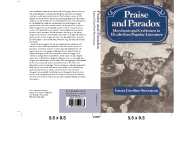Book contents
- Frontmatter
- Contents
- Acknowledgements
- Prefatory note
- Introduction: praise and paradox
- PART I ELIZABETHAN POPULAR LITERATURE
- 1 Elizabethan popular literature and its economic context
- 2 The popular Elizabethan authors
- 3 The popular Elizabethan audience
- PART II THE BUSINESSMAN IN ARMOUR
- PART III THE GENTLE CRAFTSMAN
- APPENDICES
- Index
- Past and Present Publications
3 - The popular Elizabethan audience
Published online by Cambridge University Press: 29 October 2009
- Frontmatter
- Contents
- Acknowledgements
- Prefatory note
- Introduction: praise and paradox
- PART I ELIZABETHAN POPULAR LITERATURE
- 1 Elizabethan popular literature and its economic context
- 2 The popular Elizabethan authors
- 3 The popular Elizabethan audience
- PART II THE BUSINESSMAN IN ARMOUR
- PART III THE GENTLE CRAFTSMAN
- APPENDICES
- Index
- Past and Present Publications
Summary
Literary historians have long assumed that the Elizabethan audience was composed of people with an exceptionally high rate of literacy and an extraordinary interest in the stage and the printed word. R.K. Webb, for example, has estimated that ‘Tudor England may have known a literacy rate of forty or fifty per cent’, and Richard Altick, while more cautious, has also suggested that a great number of Elizabethans could read. Wright has said that many of these literate Elizabethans were tradesmen and their families who ‘pored’ over books; others, Elizabethan apprentices, spoke with more ‘clerkly wisdom’ than scholars of earlier centuries.
These descriptions are more impressionistic than factual, though there is no doubt that the Elizabethan audience was larger than any earlier English audience and that some portion of it was composed of men of moderate income. It is difficult to avoid impression in any study of audience, for audiences leave few traces after they disperse; frequently the only evidence available to historians who wish to study an audience are the portraits drawn by the authors who wished to appeal to it. Elizabethan authors portrayed their audiences as eager, intelligent men who were deeply interested in the written word; they courted this audience in their prefaces and titles. But such courtship, of course, was written specifically to create the impression that there was a wide audience for Elizabethan books that every literate man would do well to join.
- Type
- Chapter
- Information
- Praise and ParadoxMerchants and Craftsmen in Elizabethan Popular Literature, pp. 51 - 74Publisher: Cambridge University PressPrint publication year: 1984

